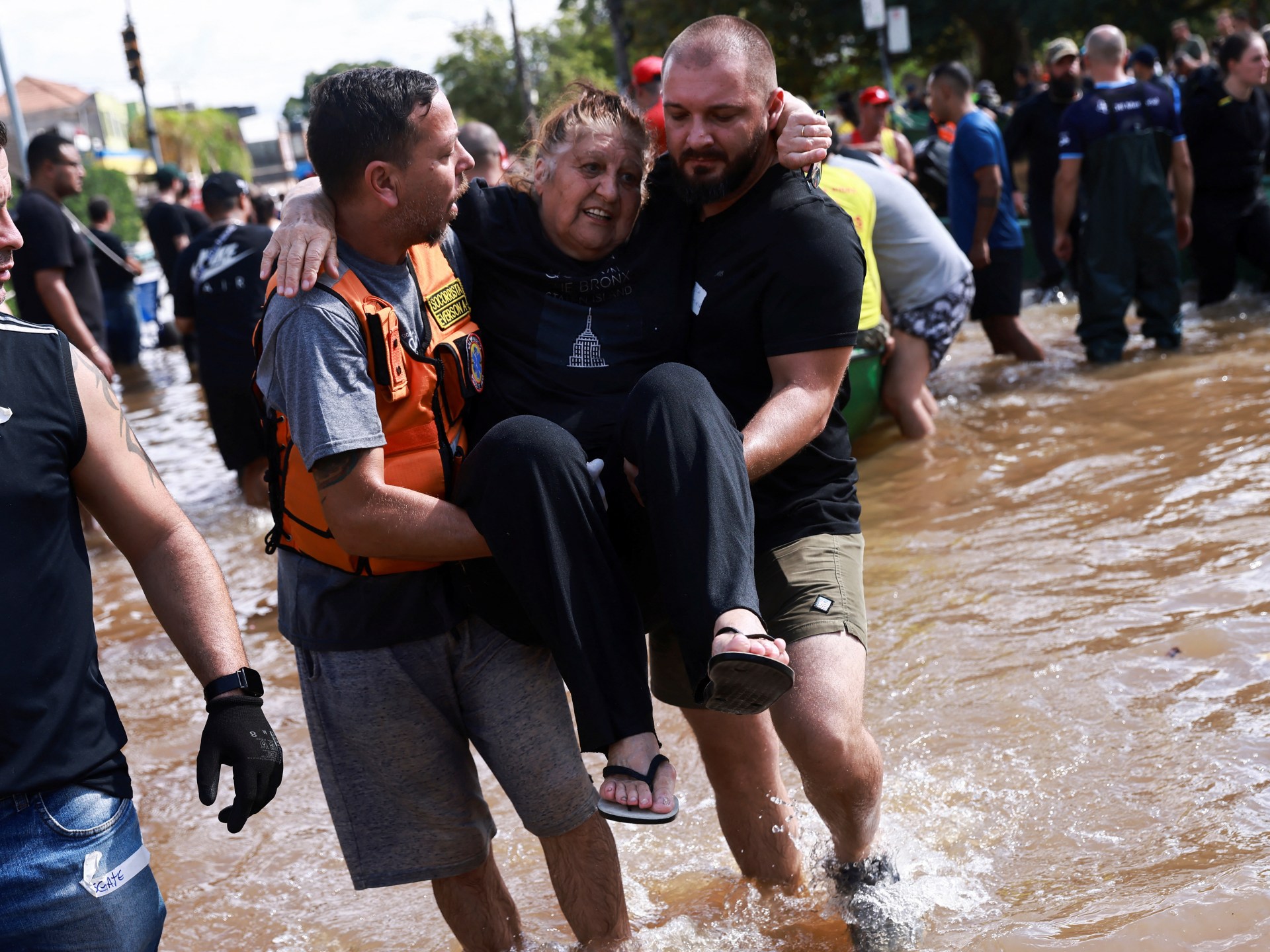
Crews race to rescue survivors as floodwaters displace 160,000 people across southern state of Rio Grade do Sul.
The death toll from tremendous flooding in southern Brazil has reached 100, the local civil defence agency said, as emergency crews continued to search for dozens of missing people.
Nearly 400 municipalities have been affected after days of heavy rains swamped the Brazilian state of Rio Grande do Sul.
The floodwaters injured hundreds of people and forced 160,000 others from their homes as of Wednesday, while the state civil defence authority said 128 people were still missing.
Brazil’s national centre for natural disasters said the southern part of the state was under “high risk” of more floods throughout the day.
It said rainfall was expected to restart, and although it was not expected to be significant in volume terms, water levels are already high in many places and the soil is saturated.
Many residents have no access to drinking water or electricity – or even the means to call for help with telephone and internet services down in many places.
State Governor Eduardo Leite warned earlier this week that the human toll was likely to rise as “the emergency is continuing to develop” in the state capital of Porto Alegre and other areas.
Only two of the six water treatment plants in Porto Alegre – home to about 1.4 million people – were functioning, the mayor’s office said on Tuesday, and hospitals and shelters were being supplied by tankers.
Brazilian President Luiz Inacio Lula da Silva has promised that there would be “no lack of resources” to meet the needs of residents.
“We understand the difficult financial situation faced by Rio Grande do Sul,” he said at an event in Brasilia, adding he wanted to make sure the state would get “everything it is entitled to”.
“We still don’t know the exact dimension of the floods, that will only be clear to us when the water levels return to normal,” Lula said.
About 15,000 soldiers, firefighters, police and volunteers were at work across the state to rescue those trapped and transport aid.
The Brazilian navy also was expected to send its NAM Atlantico vessel – Latin America’s largest – to Rio Grande do Sul on Wednesday with two mobile water treatment stations.
In Gasometro, a part of Porto Alegre popular with tourists, the water continued to rise on Wednesday, complicating rescue efforts.
“You can only cross on foot or by boat. There is no other way,” 30-year-old Luan Pas told the AFP news agency next to a street turned into a stagnant, smelly river.
Another Porto Alegre resident, Adriana Freitas, said she had “lost everything”.
“It’s sad when we see the city, our house, in the middle of the water,” Freitas told Reuters. “It seems like it’s over, that the world has ended.”